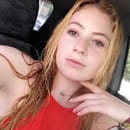Upon entrance to Shannon Hall in Memorial Union, there is a line pouring down the stairs and into the Rathskeller. The throng of anticipated listeners are booming with excitement, exchanged between laughter and raised voices. The crowd is comprised mostly —of what I assume to be — females of all colors, ages and sizes, with rainbow flags dotted on apparel, heavy winter jackets zipped up, and briefcases tightly clutched.
As the clock nears 7:30, the lights of the large room dim to a soft orange, voices soften into hushes, and after long, ostentatious claps the spotlight turns to Tarana Burke, the founder of the Me Too movement.
Burke was born and raised in The Bronx, in what she noted as a middle-class family. She grew up reading and dissecting her mother’s pan-African, black feminist literature, like that of Toni Morrison.
As an adjustment to the intrafraction of black and white culture, Burke became involved in a multitude of empowerment organizations, The Institute of the Black World, 21st Century and Sister to Sister, to name a few. These groups were the foundation of her desire to bring sexual assault — predominantly for people of color — to the forefront of social injustice awareness.
Between supportive crowd interjections of “mhm’s” and claps, Burke brought light to an influential person, whom she dubbed Heaven, that altered the course of her activism. At the young age of 22, Burke became aware that 12-year-old Heaven, a member of Sister to Sister, was sexually assaulted by her step-father. Although Burke was instantly affected, she admitted that she did not, at the time, have the expertise to guide Heaven.
“You don’t want to be the one to say something that puts them on the wrong track…I didn’t know what to say. What I wanted to say is that ‘it happened to me too.’”
Here, the dynamic of the audience shifted. The room was completely silent, eyes focused, and heads cocked forward. This was the first time Tarana had said “me too” and it was more personal than expected.
After Heaven confided in her, Burke understood that there was no clear course of healing for victims of sexual assault. She remembered going to the door of a rape crisis center and being turned down because of the organization’s strict requirements of who gets help — which were only those who reported it.
Burke took the pathway to healing into her own hands, and although she was not yet professional, she used her organization skills to build. She identified that the first step to recovery is discovering the language to discuss sexual assault. Part of the conversation is involving a network of support where survivors can exchange their assault experiences.
“If someone just said something to make me know that I wasn’t alone, it would have changed the trajectory of my life.”
In this process, young women were coming to terms with the meaning of sexual assault. Burke mentioned a junior high school student who was dating a 21-year-old and didn’t understand the depth of statutory rape. In this space that Burke created, women started to open up and realized that not only were they not alone, but there was a sea of women who had similar stories.
Burke then turned her attention to social media, where her MySpace page was beginning to blow up from survivors all around the globe. This was a turning point; her focus of female youth was expanding into something bigger: a movement. As attention to the movement continued to expand, so did the dialogue. Some had promulgated dangerous misconceptions, saying that #metoo was “anti-men” and “doing away with due process.”
However, Burke claimed that such commentary was the wrong conversation being had — that “we are a global community of healing and action…anything else said is a rumor and is a distraction.” But it only enticed more participation. For once, survivors were becoming the forefront of the work to end sexual violence; survivors were leading their communities to combat the misinformation. These leaders were able to find strength in each other and themselves.
“You are not the sum-total of everything that happened to you. You are a survivor, not a victim,” Burke said.
Burke identified that the problem lies not only in #metoo rumors but in the deficit of accountability in America. She mainly alluded to the current Trump presidency and his refusal to take responsibility, setting a dangerous example for the people around him. Burke gave the example of Brett Kavanaugh and how if he simply took accountability for not having an understanding of what consent was when he was a teenager, and admitted that he was a different person now, the community’s perspective on him would be different.
Burke defined the term “accountability” as admitting to wrongdoings and abuse of power. She made a point that everyone is scared to become the first example of taking responsibility for their injurious actions, because it may harm their reputation. However, admission is what enhances credibility.
The most harmful product of such frequent deniability is that survivors get lost in the discussion. The story becomes focused on the perpetrator and fails to concentrate on how these survivors find their worth and wholeness again. The story then strays away from its genuine purpose: a conversation about the misuse of power and privilege.
“Healing equals laws, policy and culture. Community healing equals what we decide together to make our voice heard.”
Community healing was an idea brought up to the students of the University. After all, a UW survey found that one out of every four undergraduate women on campus has experienced some form of sexual assault at the University. This percentage is higher than the national average.
Burke challenged the University’s resources to meet their mission statement, saying “emails do not make the University an advocate and do not make anyone safer.” In response to the UW system failure, she pushed to motivate students to make the change, reminding the audience that everyone has power now.
“Use your collective power by creating the change you want to see. Talk to each other…freak them out.”
She emphasized the significance of integrating ethnic and cultural groups to form a collaborative voice.
She noted that there is no silver bullet; one person cannot solve the problem of sexual violence. The media’s portrayal of such incidences are a noisy distraction and that everyone must work together. More importantly, there is space in this movement for everyone.
In order to participate, we need to incite conversations, point out the University’s wrongdoings, and realize the urgency of the situation.
“We don’t physically see the damage. We don’t see dead bodies, so people don’t see the urgency, but the evidence is in the hands raised.”
After several brave questions from the audience, Burke exited the stage with booming applause. She may have left the University but the inspiration and a blazing fire to create remains. Together, the crowd flung their hands into the clarity of the air and said: “me too.”



